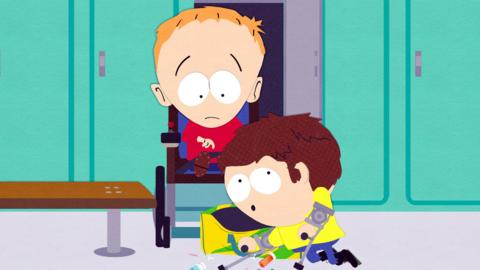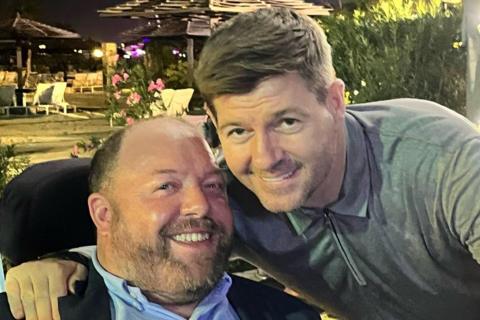I can feel the anger rising. How am I facing this abuse again after 20 years?
My name is Alex. But increasingly young people shout “Timmy” at me in the street. This isn’t mistaken identity - it‘s mockery because I use a wheelchair.
I should ignore it, but this time, I react. I turn to see a group of young teenage boys smirking in front of me. “I heard you,” I tell them. “I know exactly who Timmy is.”
I know this because although we do not share a name, I have felt the shadow of Timmy since childhood - never through choice.
A disabled character from dark-humoured satire cartoon series South Park, he uses a wheelchair and can only shout his name, mainly loudly and uncontrollably.
Growing up at the show’s initial peak during the turn of the millennium, Timmy followed me through school corridors, classrooms and playgrounds - no matter my friends, sociability or relatively good grades.
Now, in my 30s, he’s back. For the third time in a year, this time heading to my local train station in my wheelchair, I hear the familiar, brutish drawl: “Timmaaah.”
A laugh. A snigger. An assumption I either won’t hear or be unable to understand.
When I confront the group of boys, one feigns innocence, claiming he’d been speaking to his friend.
“You weren’t,” I say. “I was watching the show before you were born.”


